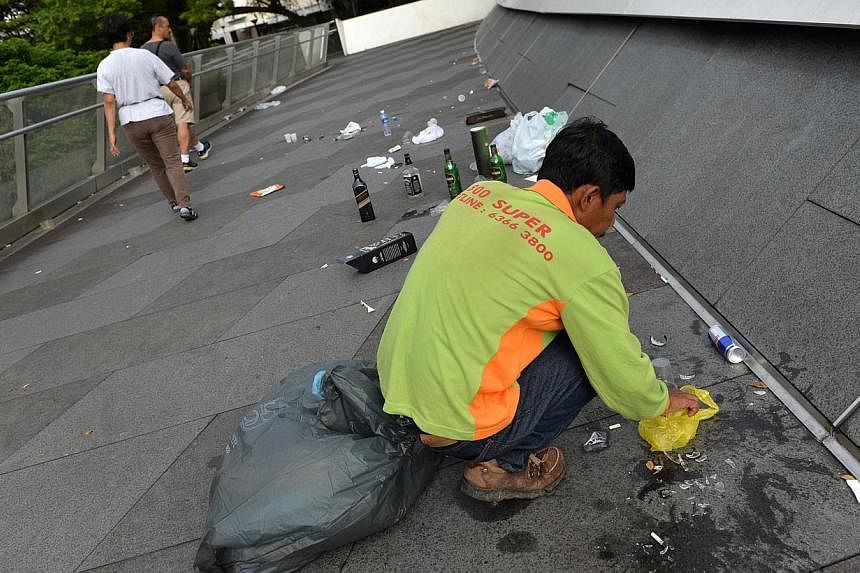An in-depth study to figure out the cause of littering, getting young students to try being cleaners for a day and heavier penalties are among the suggestions made to stop Singapore from becoming a "garbage city".
Academics, civil society members and Singapore residents whom The Straits Times spoke to also have their own take on why the problem persists and what needs to be done to solve it.
Aside from the often-cited reasons such as complacency fostered by an army of cleaners, a "don't care" attitude and growing up pampered, some suggest that different cultural attitudes among some of Singapore's new citizens and foreign workers, and a reluctance to truly shame culprits, could also be behind the country's litter woes.
Last year, the National Environment Agency (NEA) issued about 19,000 tickets for littering -almost double the number in 2013. Thirty-one per cent of these tickets were issued to non-residents.
There were also 688 instances of Corrective Work Orders imposed by the courts, more than double the figure of 261 in 2013, the NEA said in a letter to The Straits Times Forum Page yesterday.
It said it takes a "strict line against all littering offenders, regardless of nationality".
In 2006, The Sunday Times highlighted the problem with a news report headlined, "WARNING - We are becoming a GARBAGE CITY".
About a decade later, the country's trashy ways are back in the spotlight, following Facebook posts from three politicians, including Prime Minister Lee Hsien Loong. They had commented on the appalling amount of rubbish left behind by about 13,000 concertgoers at the Laneway Festival at Gardens by the Bay.
Emeritus Senior Minister Goh Chok Tong wrote that Singapore is likely to become a "garbage city", if not for the foreign workers who pick up after its people.
"Cleanliness is a character thing. It shows who you really are," he wrote.
On his Facebook, Mr Lee urged people to do the right thing, and said "we need to progress from being a cleaned city to a truly clean city".
Even though stepped-up enforcement efforts could be a contributing factor to last year's 19,000 littering tickets, Minister for the Environment and Water Resources Vivian Balakrishnan expressed disappointment at the numbers.
"If we do not mess up our own homes, then surely our streets, our clubs, our gardens must not be messed up," he said at a community event.
Despite what seems to be a perennial and unsolvable problem, many experts believe Singapore can still reclaim its sterling reputation as a clean city.
What will be key to getting this done is for all Singapore residents to do their part, they said.
As the NEA said in its letter: "While enforcement is important, to tackle the littering problem effectively, a new social norm is needed where society frowns upon littering as a socially unacceptable act, and where members of the public proactively remind litterbugs to dispose of their litter properly."

